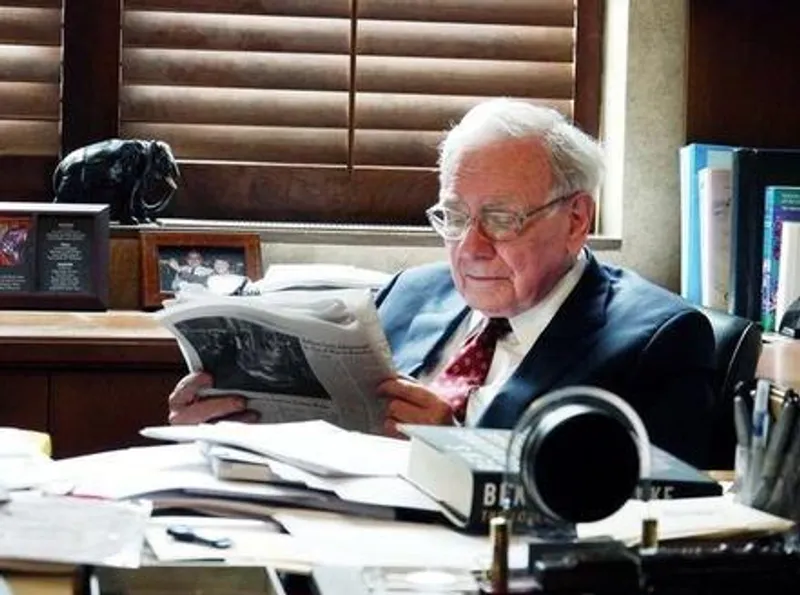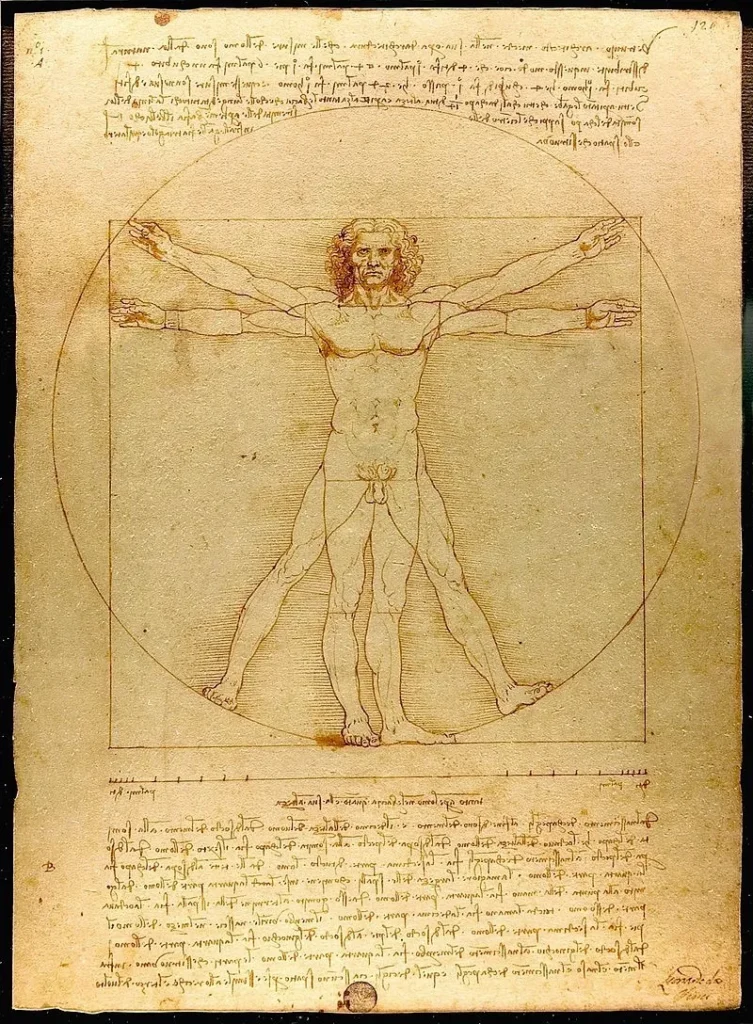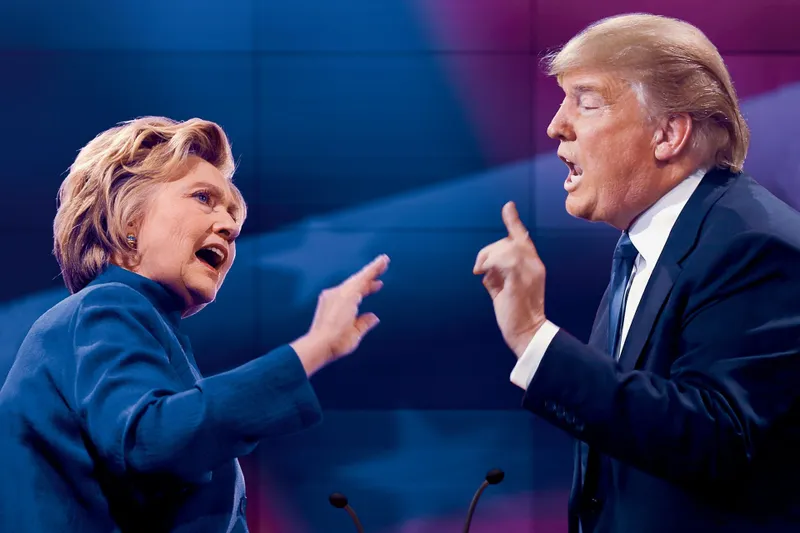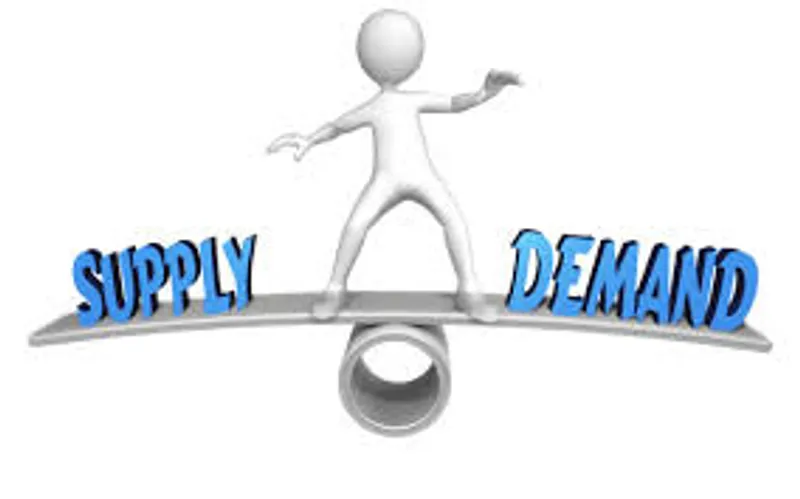“Market Behavior follows your eating experience at a Restaurant ..!” ~ TheVIP
A Restaurant (reputation, location, ambience, Menu, pricing, Seating/Table location, Service) builds confidence in you to take a plunge & put your butt in the seat, although you may develop some anxiety about the Meal, but what you miss is that the actual outcome/experience of the Meal is realized based on your mood, your tummy situation, your current state of Ingestion and Digestion process, the Meal & the gap to the Next Meal … all of these factors (except the Meal) are independent of the Meal; both the environment & you (the factors) are part of the experience, & should prepare you for what’s coming, but a Meal must be enjoyed as served, in present & no prediction or anxiety whatsoever … so is the Market Behavior … got it ..!
Financial Markets Behavior
mein keha Sir ji, kuch sade waste bhi chhad jao (written in Punjabi) ..
[a close translation in English] if Sir Newton had figured out everything, then there won’t be anything left for TheVIP to work upon ..!


do financial markets behave randomly ?
contrast among experts: most academics believe that markets are random, hence unpredictable; & some of the smartest academics start hedge funds, where they develop algorithms to predict market behavior exploiting its randomness (using Wiener process to be specific) … interestingly, in my opinion, both are wrong, as they both can’t be right due to circular reasoning ..!
although most of the academics in business schools teach and practitioners on wall street preach that markets are random … on the contrary, i be-lie-ve that nothing is random in this universe, including the behavior of financial markets … whatever is happening in the world in general, and financial markets in particular, is based on cause and effect.
let’s expand the above with help from physics … as per Mr. Newton, for every action, there is an equal and opposite reaction … i leveraged this law of physics, and built my own by just reversing it … for every reaction that is happening in the world (or in financial markets), there was an action that took place somewhere in universe OR in other words, nothing is random in this world – thanks to Mr. Newton for this one.
it is just that individuals have limited brain capacity to link all that is happening around the universe, but computers can gather and handle vast amount of data; moreover, computers neither get tired nor ask for a raise; so, i built my trading floor using 24 monitors [as of Sep 2018] that capture anything and everything happening around the world round the clock in real-time.
btw, did you notice that i used universe for actions & world for reactions in describing my law… yes, those actions not only come from this world, but beyond this world as well … that’s where astronomy and astrology come into picture … so, the topic continues onto the Humans/Big Universe page.
more on cause & effect
although the statement in above section seem quite simple saying that its all about cause & effect, but it’s not as simple as it seems, because if it was simple, people would have already figured it out ..
this cause and effect business is quite simple for physical objects since they don’t have emotions; so if you push a stone, it will move away, assuming you are applying enough force on it .. on the contrary, if people becomes emotional, they may show reluctance to change, even with a powerful force …
tricky huh .. that’s the key to understand the difference between cause & effect .. so let’s try posing a question for various valuation disciplines, as below
for fundamental analysts:
earnings, interest rates & PE ratios (used by fundamental analysts) are just numbers & numbers are based on an abstract concept … they go up or down based on certain outcome … & a high or low number, compared to what we expect, generate emotions & turn into buy/sell decisions, which becomes news – & as a result, market/stock goes up or down ?
– OR –
thinking in reverse: does news turn into emotions (fear & greed) ? & emotions drive the stock market which is measured by folks using numbers … & then the stock analysts & the general population make sense out of those numbers / valuations.
AND here is a version for technical analysts:
does money follows [predefined] chart patterns or do charts patterns follow money ..?
as if charts worked the same way all the time, then chartists would be the richest folks on wall-street, which is definitely not the case.
AND a version for market theorist:
do index prices (which drive ETF pricing) drive individual stock prices or do individual stock prices drive index (ETF prices) ..?
as sometimes the stock pickers can’t explain why market is over-reacting to a given situation which takes a particular stock price to a new high / low level.
AND as oldies who have worked in markets for long-time say:
sometimes good news is good news, but other times a good news becomes a bad news ..
so what makes markets to chose one over the other as cause vs effect ..?
based on my research so far (as in Apr 2018) the answers to these questions is: IT DEPENDS (haha .. learned this escape clause in business school!) on the context, which means that any theory / concept (like technical or fundamental analysis) used in isolation is meaningless, as they all work sometimes, and the right answer depends on the context – the most important thing in any situation / conversation ..!
& the context is what people are thinking, anticipating, sensing, feeling & expecting in a given situation; also known as human emotions – “the touchy feely thingy” which dictate “the market behavior.”
is it possible to project human behavior ..?
well, let me answer this question with a catch to make theorist happy … markets are not predictable .. & how can it be if in your perception, she is a woman ..? .. btw, it’s a compliment, as her behavior got to be a mystery ..!
plus, no one knows the future; however, her behavior is project-able if you are aligned with her thinking .. would you agree? … e.g., if you buy an expensive gift, you can project the outcome; i.e. how she will react to in certain situations, and as long as you don’t get stuck with yours [prediction], you will be fine … so be open & the situation will become project-able.
let me take an example in a different context … suppose you are leaving your home to a restaurant which is 30 miles away from your home .. although, it is hard to tell exactly what time you will arrive at the restaurant, due to traffic conditions and so on; however, if you left your home at 0745PM and the goal is to reach at 0800PM, it can be projected that you will not reach there in time, unless you do something crazy like drive at 120 miles/hour on a local route, which means your odds of getting into an accident become much higher (also known as risk-taking).
using the same example, if you have three stops in between your home and the restaurant, it is hard to predict that what time will you be there at each stop; however, if you are a patient driver (i.e. only get into an accident like once in 10 years or so & the car that you drive generally doesn’t break down (you make good investments like Buffett)), you will get to the restaurant in a reasonable time around 0815PM … so, it is project-able.
here is another example to understand the concept: let’s say you are driving on a freeway from San Francisco to Los Angeles – a distance of about 400 miles; you don’t need to see all 400 miles from your windshield & no one can ..! rather you need to see just a couple of miles ahead, and in some cases (like bad weather) you can only see few hundred feet … but if you drive safely, you can still reach the destination.


wouldn’t big boys (investment bankers) take advantage of her behavior ..?
markets are efficient (especially when millions of high & low frequency traders & machines are working round the clock to grab just an inch of her), but she is not perfect .. & here is why ?
first, not everyone digests all the available information at the same time … so, there is a time delay due to how individuals access information and then absorb the same (weekly, daily, real-time, hardly ever) … second, what’s worse then the delay is that most people are not equipped to handle and process original (unbiased) information; so, they look for someone else; e.g. the information available on social media sites like FB & twitter or in Internet chat-rooms, or the guy who you pay to get the trading tips/ideas or an advice from a colleague or friend is all secondary information & hence biased … third, on top of that, how people interpret a piece of information depends on their own biases (investment bankers have their own biases too!), behaviors & trading cycles ..
so when you act on information that you receive from someone is their biased opinion and not original, resulting into markets being NOT perfect!
before you read further, you may wanna listen to two members of the Chicago Booth faculty – Nobel laureate Eugene F. Fama (a traditional economist) and Richard H. Thaler (the father of behavioral economics) … two giants of the financial world in the video
if financial markets are efficient then how do they turn into bubbles …?
economists like, noble prize winner Eugene Fama & others, who believe that markets are efficient and humans follow rational behavior, do not support bubble formation, as so called bubbles can only be seen in hindsight & it is impossible to know when you are inside one …
i agree with him that markets are efficient, as simply a tweet or speech by Trump can move the market .. so all the information available is reflected in the price ..but bubble is different story ..
let me start with, is price same as value ..? & if you are a Buffett fan, you would now the difference ..!
for the students of physics, let me ask you, is light a particle or a wave ..? & you know the answer, “it depends since light follows a dual nature ..!” but you can imagine the dilemma/pain that students of physics went through in early 20th century?
okay, now if i ask you, is price a point or a wave ? & you will say, “what the hell .. ?” .. never heard of this before ..!
well, price [of an item] may be a point or a number, as in dollars, but the price of an item also varies with time, making it undervalue to overvalue as price varies .. like a wave – make sense ..?
moreover, in financial markets (for securities), it varies from moment to moment – heard about high frequency trading .? … in financial markets, the bubbles are formed for real and on daily basis; however, the extent of formation and burst [of a bubble] varies [each day]; moreover, most people only see the financial bubble in a decade or so & when they give up all hopes – after a bubble pops out; i.e. only seen in past ..!
is your head spinning at this point? … i know mine did, the day i thought of price as a wave for the first time, as how the hell i connected light/physics with price/economics & developed VIP’ bubble theory ..!
moreover, the bubbles are formed based on people’s current state of emotions about the market; e.g. in January 2018, folks applied a 20 p/e to s&p to come up with a 3,000 number; however, as they feel different about the future earnings, for which they had no clue, in Jan, Feb or Mar … the same folks started using a 18 factor giving a valuation of 2700 .. now think about what happens if these folks start iterating a 15 or 16 p/e – a normal value … you can do the math … the earnings which will come in future will be, whatever they will be … what changes is the human emotions based on a curve (described in details on Humans/Human Behavior page), which turn market valuations into a bubble state and then what follows it .. you already know the story.
if you are familiar with bubbles in stock markets then you may also know that the frequency of these bubbles is quite low, like 10 years or so .. e.g. the last two ones were the real-estate bubble/burst that took place in 2006-2008 & the tech bubble/burst which occurred in 1999 – 2002.
based on my thought process, bubbles form very much like how men grow their belly, mainly after they get married, by taking few more extra calories each day and not consuming / exercising enough .. & what can i say .. it’s human behavior & it’s completely normal … it happens naturally & it follows certain pattern … so in order to understand a bubble behavior, i then turned to nature for answers.

why it is so hard for people to know that they are in a bubble …?
this is what i call the top floor problem ..!
let’s say you are interested in buying a unit at the top floor (15th) of a building, which you fell in love, the price looks good and the location is perfect … then you get a call from a solid source that the building has a problem in its foundation .. & you say, really ..!
how come the guy who bought the floor right below yours (14th) didn’t know that the building has a problem .. so you called this guy and ask him, “hey, do you know if the building has a problem in its foundation?” and the guys responds, ” i don’t know!” but why would someone buy the floor below mine (13th), if the building had a problem … you got the point .. that everyone relied on someone else to make a good judgement, when none of them tried to find or verify the information himself … & eventually the building falls OR the bubble bursts in stock market …!
it’s complacency and lethargy in human nature, why people don’t see bubbles in stock markets, until of course, the bubble bursts or a building falls ..!
how nature can help you find bubbles …?
nature creates beautiful things like human body, flowers, DNA & seasons using symmetry, patterns and cycles … & humans, inspired by these patterns, produce beautiful things like dance forms, paintings, art, architecture, quarterly & yearly financial reporting (10Q/10K).
after observing these bubbles for decades, i concluded that the patterns to describe the bubbles in stock markets are similar to the shapes and patterns found in nature; therefore, i concluded: in financial markets, bubbles are formed and burst every day, and these bubbles follow the cycles & patterns found in nature .
bottom-line, go out and enjoy nature … it is healthy and you will learn a pattern or two from nature that will help you make money.


why do political events drive the markets crazy ..?
both politics & markets are emotional business … emotions drive the markets and politics drive the emotions out of people .. think about Monica Lewinsky moment in 1998 .. what did it have to do with the economy or markets … but the event did bring it down .. politically, most people are diagonal .. we are either democrats or republicans besides some independents (including me!) … we are either liberals or conservatives … & in most cases, people believe that the other side is the bad guys.
and obviously, emotions flare up when an issue surfaces that goes on one side as an extreme … e.g. in Feb 2017, i have heard so many people saying, Trump is not my president .. a funny incident happened in Carson City where Yashika & i were walking and a guy showed up at a park and asked us if we were there to protest the president, to which we denied … & i tell these people, if you are a resident of USA, he is your president, and if you don’t agree, you are in denial.
interestingly, things became really emotional on the night of the election (Nov 2017) … market continued going down as results come in and Trump started winning, and ultimately announced as winner … but market turned around as soon as he started speaking and returned 40% in one year from that night … what changed in that year ..? of course earnings & economic data helped, but mainly, it was people’s emotions; i.e. people cook up things in their head & play with their money.
where do goods come from .. the ultimate law of supply & demand …
first, any & all the goods & services that we use come from Mother Earth .. sounds shocking .. let’s take an example: almost everyone uses a computer … at the most basic level a computer is nothing but a few pieces of plastics and metal, a few chips made of silicon and metals, memory made of magnetic material & wires made of plastics and copper etc. so, at the most basic level anything and everything that is needed to build a computer comes from Mother Earth & the same can be extended to food that you eat, gas you pour in your car, material needed to build your house etc.
now, let’s talk about services part, which consists of human doing something for other humans … either good or bad ..!
the most powerful thing that comes close to creation by humans is the ability to create other humans, but even this power is delegated to us by nature as the process is controlled by her; i.e. we don’t have the ability in absolute sense, OR we can’t create babies on-demand … it still takes 9 months to create one & with lots of support from nature.
third, although humans have grown their knowledge and have advanced technologically in last 5,000 years, Nature & only Nature has the power to create things in this universe, & therefore, it controls the ultimate supply & demand … humans can only transform what nature provides us … from one form into another … leads to the fact that nature controls the ultimate supply of resources and humans are only allowed to make the best (or not so best) use of these resources … for example, nature creates grains [from seeds] and humans transform it into bread.
looking in reverse, if humans had the power to create, we would have created large number of babies so we could offload our debt/liabilities to them and economies like Japan, Europe & US could solve their growth / debt / social security problems, but the fact is things are not working in japan or other places
it’s ironic when you think about that forty years ago many were worried about too many people on the planet, consuming the world’s resources; and today we have the opposite problem: there are too few people … right now [in 2016] , there isn’t a single large country in the developed world with a birth rate high enough to keep its population stable .. to make matters worse, there doesn’t seem to be any way to reverse the course … and it’s not that we’re without solutions – we’re just without any good ones! … some countries are literally throwing money at people to have kids. .. and one country has gone so far as to suggest people go on vacation, because couples tend to .. you know .. more when they’re traveling.
humans have tried to overcome the nature many times and nature let us play for a while; however, eventually, it reverts us to mean or limits us to the resources available – see Malthusian principle on my blog.
based on above points, i formulated that nature controls human populations & its growth on this planet … the current demand of a commodity (and its alternatives) is limited by the number of humans on the earth and the future demand of a commodity (and its alternatives) is limited by the population growth in this world, which in turn is controlled by nature.
now where do babies come from ? … it’s a curiosity question for every 2nd or 3rd grader & is out of scope of this website … but the good news is that by the time the kids become teenagers, they generally figure it out themselves.
